19+ MLA Examples to Download
When it comes to academic writing, having a clear and organized structure is crucial for conveying your ideas effectively. One widely used format that provides a systematic framework is the MLA Outline Format. By utilizing this format, writers can ensure logical flow and coherence in their work. In this article, we will explore what MLA Outline Format entails, provide a step-by-step guide on how to write in this format, address some frequently asked questions, and conclude with an emphasis on the importance of adopting a structured approach in your writing.
1. Sample MLA Outline
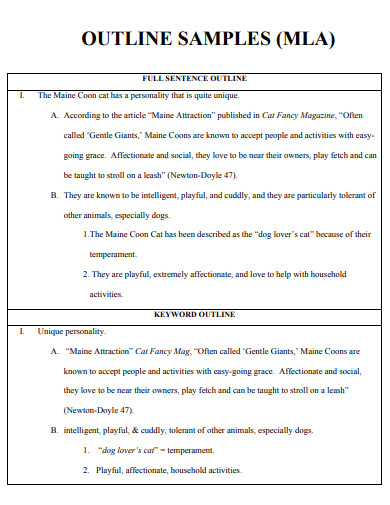
scholarworks.lib.csusb.edu
2. MLA Style Guide Outline
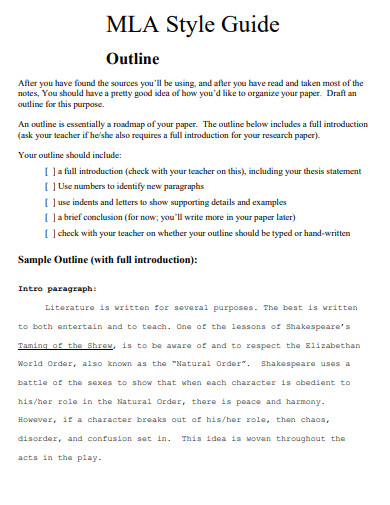
eufsd.org
3. College MLA Outline
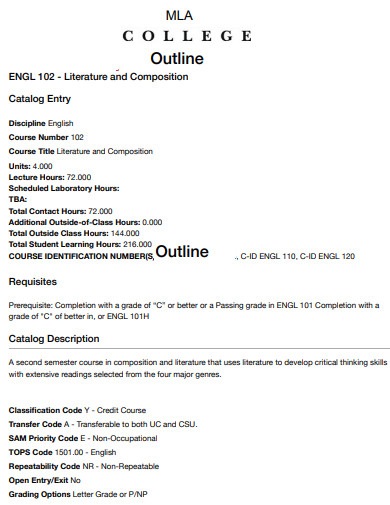
sac.edu
4. Research Paper MLA Outline
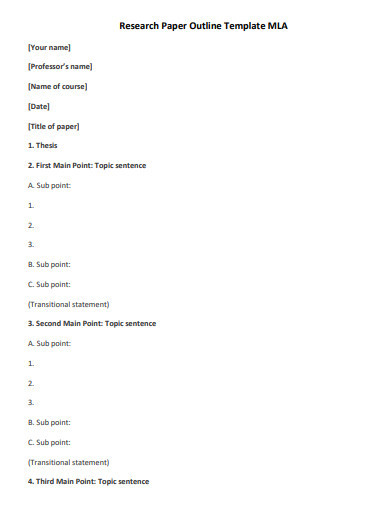
writemyessay.help
5. High School Reflection Essay MLA Outline
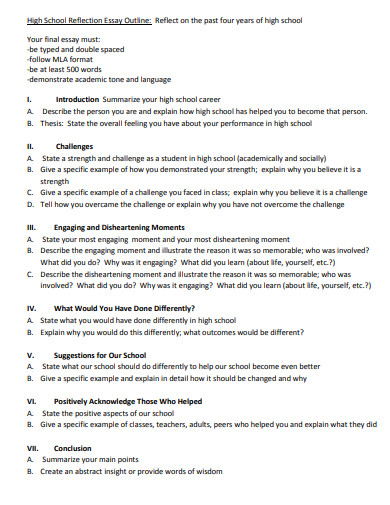
khswaveriders.org
5. Cause and Effect Essay MLA Outline
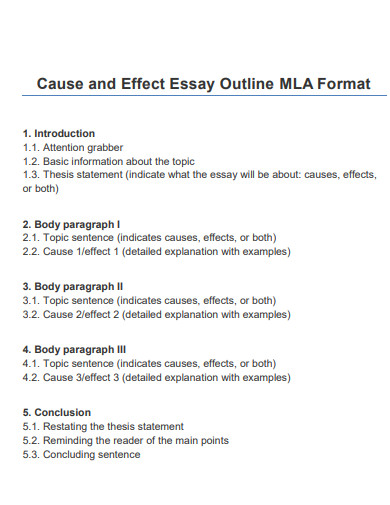
myperfectwords.com
6. MLA Paper Outline
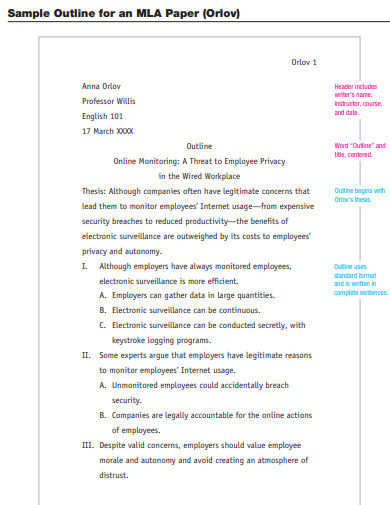
palomar.edu
7. English MLA Outline
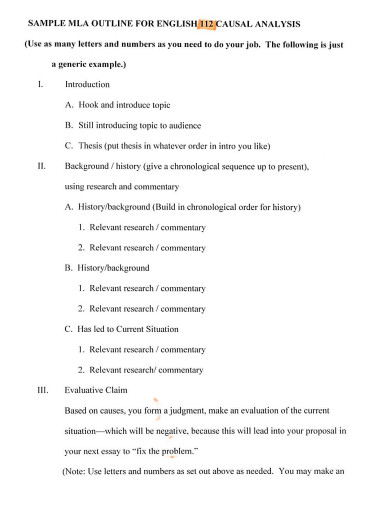
osuokc.edu
8. Purdue OWL MLA Outline
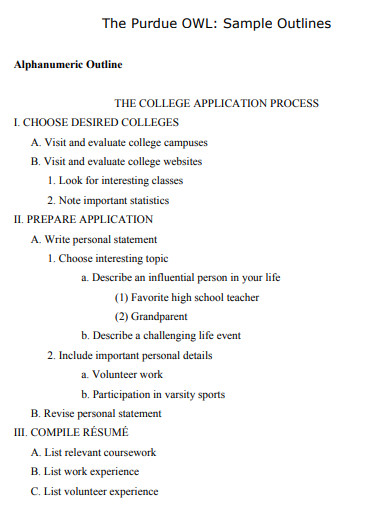
owl.purdue.edu
9. MLA Outline Assignment
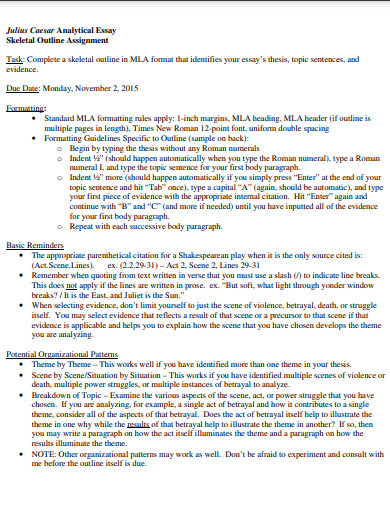
humbleisd.net
10. MLA Outline Example
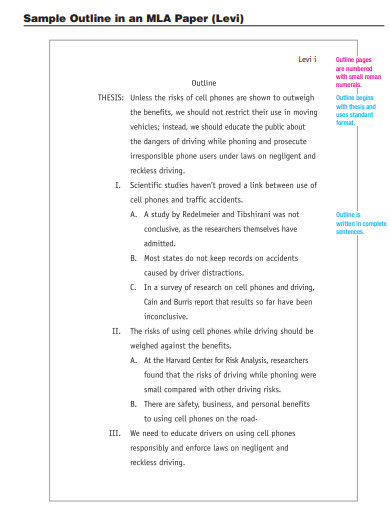
professays.com
11. MLA Outline Format
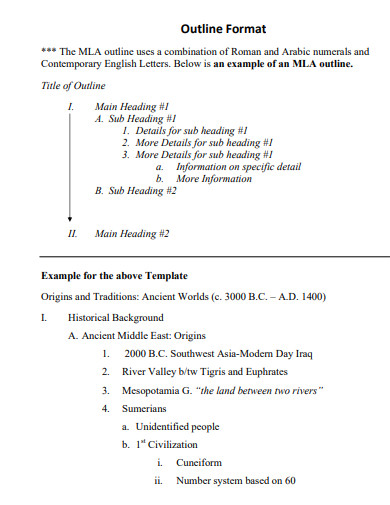
esdallas.org
12. MLA Core Elements Note Outline
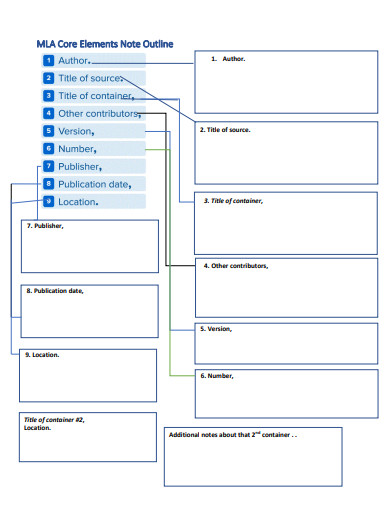
pvcc.edu
13. MLA Informative Speech Outline
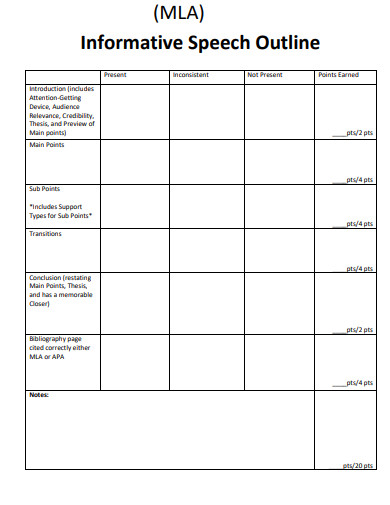
bismarckstate.edu
14. MLA Style for Research Paper Outline
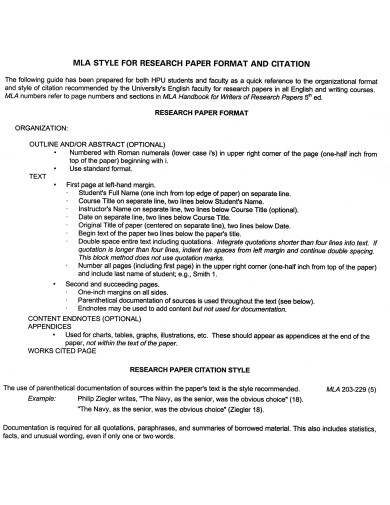
hawaii.edu
15. MLA Formal Typed Outline
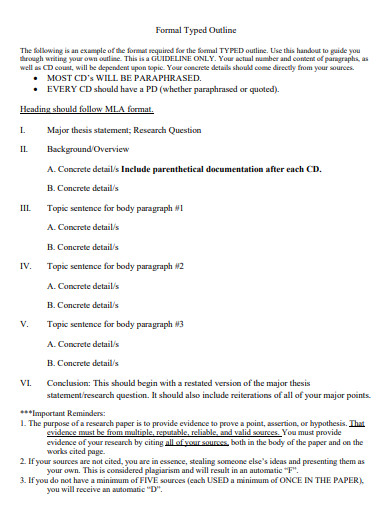
murrieta.k12.ca.us
16. MLA Course Outline
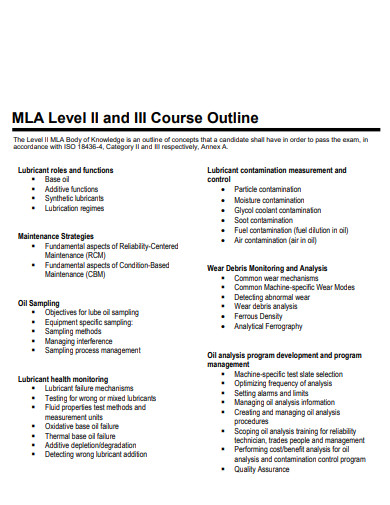
amrri.com
17. MLA Outline Rules
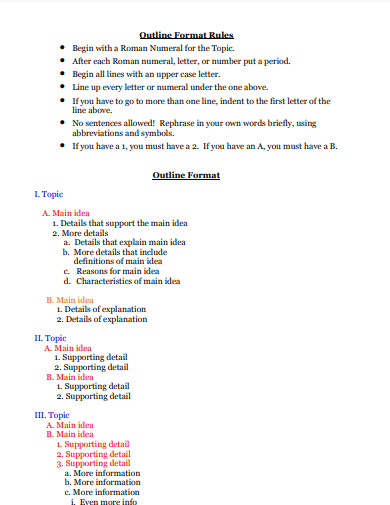
asicalstatela.org
18. MLA Proposal Essay Outline
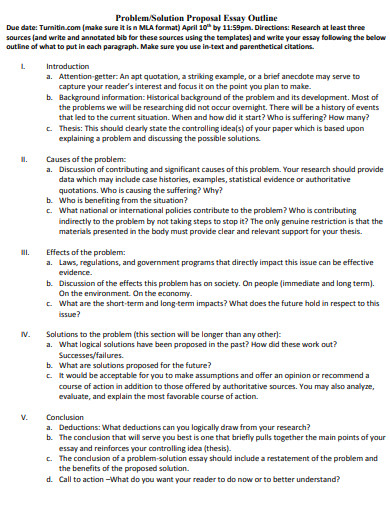
cusd80.com
19. MLA Outline Effectively
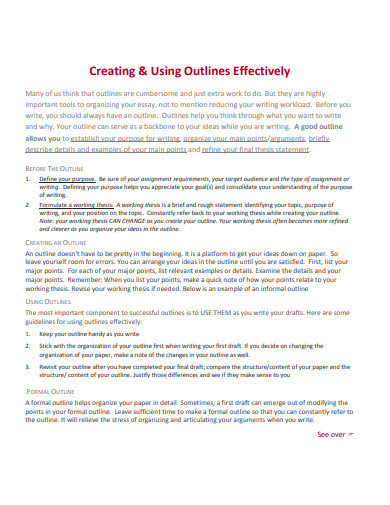
lib.sfu.ca
20. Basic MLA Outline
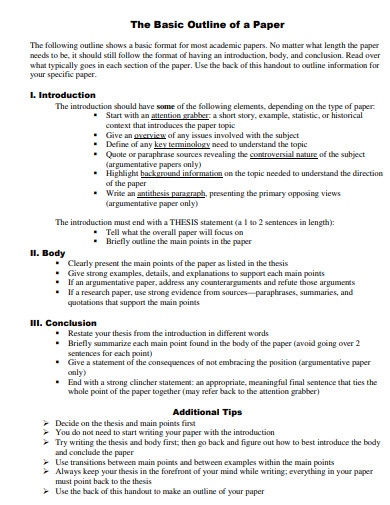
academics.umw.edu
What is MLA Outline Format?
MLA Outline Format refers to the specific guidelines and structure recommended by the Modern Language Association (MLA) for organizing and presenting written work. It serves as a framework for writers to arrange their thoughts and ideas systematically, facilitating the development of coherent and well-structured essays, research papers, and other academic documents. MLA Outline Format focuses on the logical progression of ideas, ensuring clarity and ease of understanding for readers.
How to Write in MLA Outline Format
Mastering the MLA Outline Format is essential for crafting well-structured and compelling academic papers. By following a few simple steps, you can organize your thoughts and ideas effectively, creating a strong foundation for your writing.
Step 1: Understand the Objective
Before diving into the outlining process, it’s crucial to have a clear understanding of the objective of your writing. Define the purpose of your essay, research paper, or any other piece of academic work. Knowing your objective will help you establish the focus and direction of your writing.
Step 2: Gather Your Materials
Before outlining, gather all the necessary materials for your work. This may include relevant books, articles, and any other sources you plan to cite or reference in your writing. Having these materials readily available will ensure accuracy and efficiency in the outlining process.
Step 3: Create the Main Sections
Begin by creating the main sections of your outline. These sections will serve as the primary divisions of your paper. Common sections include the introduction, body paragraphs, and conclusion. However, depending on the nature of your writing, you may have additional sections such as methodology, results, or discussion.
Step 4: Organize Subsections and Supporting Points
Under each main section, identify and organize the subsections and supporting points that will contribute to the development of your arguments. These subsections and supporting points should be logical and coherent, providing a clear structure for your ideas.
Step 5: Establish Text Structure
Once you have identified the subsections and supporting points, establish the text structure within each section. This structure will determine the order and flow of your ideas. Use headings, subheadings, and bullet points to create a visual hierarchy that reflects the relationships between your arguments and evidence.
Step 6: Review and Refine
After completing the initial outline, take the time to review and refine it. Ensure that the structure is coherent, logical, and aligns with your intended objective. Make any necessary adjustments, rearranging or reorganizing sections and subsections to enhance clarity and readability.
FAQs
Do I need to include a cover page in my MLA Format essay?
No, MLA Format essay does not require a separate cover page. Instead, include your name, instructor’s name, course title, and date in the upper left-hand corner of the first page of your essay. Additionally, create a header with your last name and page number in the top right-hand corner of each subsequent page.
Should I include a bibliography in my MLA Outline Format?
Yes, MLA Format requires a bibliography, also known as a works cited page, where you list all the sources you cited or referenced in your paper. The bibliography should be included at the end of your document on a separate page.
How important is the citation in MLA Outline Format?
Citation is a vital component of MLA Outline Format. It not only gives credit to the original authors but also allows readers to locate and verify your sources. MLA Format employs in-text citations, which typically include the author’s last name and the page number where the information was found.
In academic writing, adopting a structured approach is key to effectively conveying your ideas and engaging your readers. MLA Outline Format provides a systematic framework that enables writers to organize their thoughts coherently. By following the step-by-step guide and utilizing the principles of MLA Outline Format, you can enhance the clarity, logical flow, and overall impact of your writing. Embrace this structured approach and witness the transformation of your work into a well-structured, impactful piece that captivates your audience.


